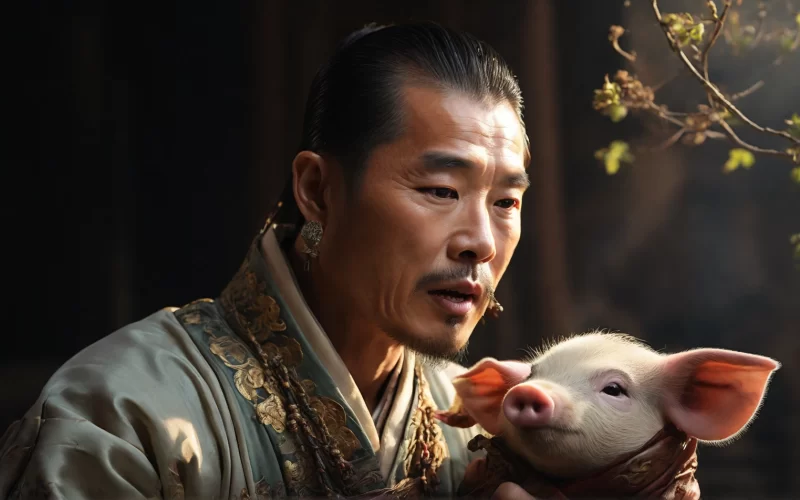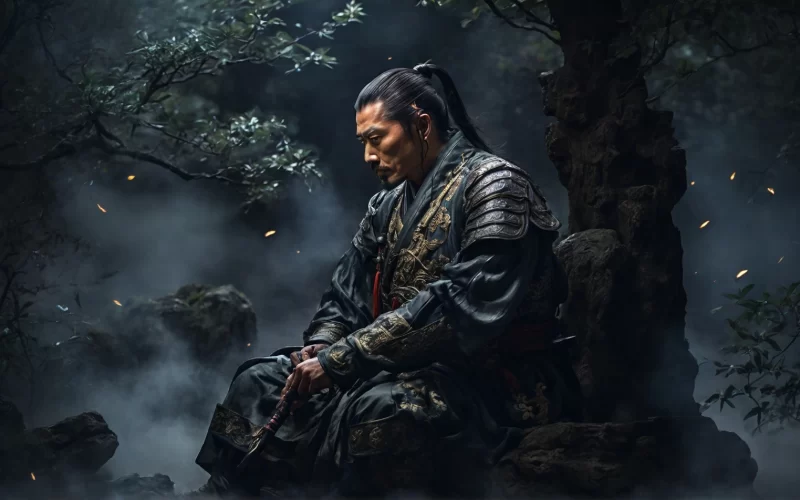Idiom Explanation:
This idiom was originally used as a metaphor for resigning from the government and then serving again, but nowadays it is mostly used as a metaphor for regaining strength after failure or regaining status after losing power.
Pronunciation:
东山再起
dōng shān zài qǐ
Origin:
唐·房玄龄等《晋书·谢安传》:“隐居会稽东山,年逾四十复出为桓温司马,累迁中书、司徒等要职,晋室赖以转危为安。”
Story:
During the Eastern Jin Dynasty, there was a man named Xie An. He was a good friend of Wang Xizhi and often visited the mountains in the east of Huiji, reciting poems and talking about literature. He was a good friend of Wang Xizhi and often visited the mountains in the east of Huiji, reciting poems and talking about literature. However, he preferred to live in seclusion in the eastern mountains rather than become an official. He was promoted to be an official, but after a month or so in office, he did not want to do it.
Later, Huan Wen, the son-in-law of General Zhanxi and Emperor Ming's Sima Shao, asked Xie An to be the Secretary of State. Under compulsion, Xie An had to agree, and at that time, he was already over forty years old. On the day when Xie An was about to take up his post, all the officials of the court came to see him off. At that time, a chancellor named Gao Siong joked with him, saying, "You used to lie high in the eastern mountains, repeatedly disobeying the imperial decree and refusing to come out as an official, but now you have finally come out! (Qing had repeatedly disobeyed the imperial decree and was lying high on the eastern mountain, and all the people said to each other that if An Shi refused to come out, what would happen to the people?) When Xie An heard this, he felt very ashamed.
This four-character idiom is derived from the words of Gao Siong.
When Xie An arrived at Huan Wen's residence, Huan Wen was very happy and the two of them talked for a whole day, and their words were very opportune. Xie An later became the official chancellor. After Huan Wen's death, he took over the military and political power of the Eastern Jin Dynasty from Huan Wen.
In August 383 AD, Fu Jian personally led an army of 870,000 from Chang'an. On the way south, smoke and dust rolled, infantry, cavalry, plus vehicles, horses, provisions, the team was vast, almost pulled a thousand miles long. After a month, Fu Jian's main force arrived at Xiangcheng (south of Shenqiu in Henan province), the navy from Yizhou also went down the river to the east, and the men from the north of the Yellow River also arrived at Pengcheng (Xuzhou city in Jiangsu province), and the former Qin marched on land and water from east to west for more than 10,000 miles, approaching Jiangnan. When this news reached Jiankang, Emperor Xiaowu of Jin and the civil and military officials in the capital were all in a panic. The Jin military and people do not want to let Jiangnan fall into the hands of the former Qin, everyone is looking forward to Chancellor Xie An to make a decision.
Xie An planned his strategy and took his brother Xie Shi as the governor, his nephew Xie Xuan as the former vanguard, and his son Xie Yan as the general, and led 80,000 troops to break the 800,000-strong army of the former Qin at the Interflow. At this time, Xie An was playing chess with his guest. He received the report of the victory sent by Xie Xuan, read it calmly, did not say anything, slowly turned to the chessboard, and continued to play chess with his guest. The guest couldn't hold back any longer and asked how the battlefield was won or lost. Xie An replied, "The boys have killed the enemy to a great defeat." He spoke with the same calm demeanor as usual.
Similar Idioms:
- 重整旗鼓
- 卷土重来
- 死灰复燃












